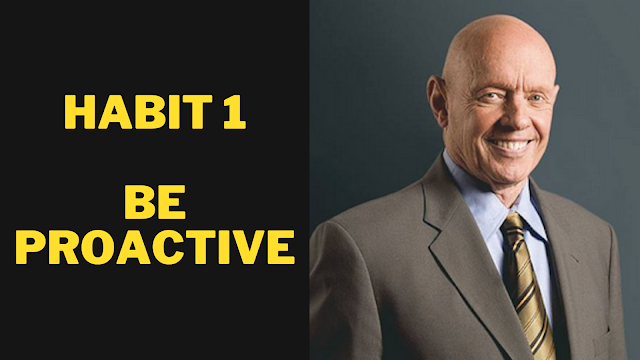Introduction “Your thoughts create your reality” often sounds like a spiritual phrase—beautiful, but hard to prove. For years, it was placed in the same category as affirmations and motivational quotes. Yet something interesting is happening in modern science. Quantum physics, a field known for its precision and complexity, is beginning to echo a similar idea, not as belief, but as observation. This does not mean thoughts magically control the universe. It means reality may be more interactive than we once believed. At the smallest levels of existence, the act of observation, interaction, and interpretation appears to influence outcomes. And that has powerful implications for how we understand the mind. When you look at these discoveries carefully, a new perspective emerges. Your mind may not be a passive viewer of life. It may be an active participant in shaping how reality unfolds for you. The Observer Effect Shows That Awareness Matters...
Introduction
The Habit 1 of Stephen R. Covey’s ‘The 7 Habits of Highly Effective People" is "Be Proactive". The book of Stephen Covey was published in 1989 but all those habits suggested at that time are still very relevant for all of us. Times Magazine suggested it as one of "The 25 Most influential Business Management Books". Whether you are a business magnate, employee or a fresh pass out, this book is very important for you. People who follow 7 Habits of Highly Effective People are not reactive but they respond to every situation they face. They are also very proactive and invest their time and energy to learn new things. In this article, we will know more about "Habit 1: Be Proactive".Watch this video to know more about secrets of success from Srimad Bhagavad Gita:
Proactive people focus on their circle of influence rather than the circle of concern. Circle of influence deals with own attitude, education, problems and work efficiency but reactive people focus on the circle of concern which deals with those things which are outside of our control like lives of celebrities, other's thinking process, natural disasters, wars, weapons and terrorist threats.
Habit 1: Be Proactive
Proactive people take charge of their own lives and do not blame others for their failures. They believe in taking action according to the problem rather than waiting for others to suggest some ideas. Proactive people also work for their future so that Fear of Failure will be less when the future becomes present. People forget the fact that they become obsolete if they do not invest their time to learn new skills as nowadays technology is changing at a much faster rate. We will become useless for our current organisation if we do not invest our resources to build new skills. Proactive people know this fact and hence they always prepare & execute their skill-building plan. Proactive people put self-check on their ego and they always try to be humble people. Proactive behaviour brings peace of mind as you plan for the future hence you are proactively preparing for challenging situations. Hence when a bad time will come, you are already prepared for that situation.How to Train Yourself to be Proactive
The best method to become a proactive person is to maintain a "Personal Journal". A personal journal is the best method to record our daily experiences. It also provides a chance to look back at mistakes and future prospect of our current situation. The analysis of our future prospects gives us the opportunity to take proactive initiatives for better preparedness for upcoming opportunities. Start spending at least 5 minutes on writing a personal journal and see its benefits yourself.Another way is to count your frustration moments so that it's root cause can be identified. We can also identify frustrating moments of our peers and start working on the root causes of those moments. This planning will help us to become proactive people.


Comments
Post a Comment
Please do not add any spam link in the comment box